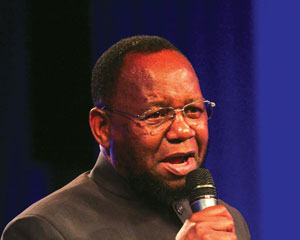
In 2009 the then minister of Education, Sports, Arts and Culture David Coltart introduced incentives for educators as a way to quell growing discontent over the paltry salaries that teachers were getting and to motivate the education workforce.
by Phyllis Mbanje
The monetary incentives came in the wake of countrywide job action that almost crippled the education sector. Most schools were operating with skeleton staff and many pupils failed because they could not finish their syllabi on time.
Although parents were initially against the idea and expressed disgruntlement, they warmed up to the idea as student performance started picking up and most schools recorded a marked improvement in public examinations.
Parents then found sense and agreed to pay teacher incentives through their schools development associations — nothing to do with the government.
But recently the minister of Primary and Secondary Education Lazarus Dokora scrapped the incentives saying they were no longer serving their purpose. This stance has been met with a lot of resistance from the educators and parents who feel that the incentives should stay until salaries are improved.
The president of the Zimbabwe Teachers Association (Zimta) Richard Gundane said the scrapping of incentives would demoralise educators whose current remuneration was still inadequate.
“The teachers need to be compensated for the sterling job that they are doing. It is demoralising [to withdraw incentives],” Gundane also pointed out that there would be a lot of problems as a result of the scrapping of the incentives.
- Lobby group bemoans impact of graft on women
- Corruption watch: Rogue cops: Blame it on the bosses
- DJ Ladyg2 fights stereotype in showbiz
- Corruption watch: Who is benefitting from the Pomona sham deal?
Keep Reading
“This will strain relations and educators and the minister/government will always view each other with suspicion and there will not be any trust,” he said.
Gundane said it was already evident that there was animosity between the two and yet for the sake of progress they were supposed to work together. Incentives were helping get teachers to stop the “unorthodox means by which educators sought to supplement their salaries, activities which did not benefit the pupil”.
He however said there were some positives to the development which has been widely debated on many social platforms.
“From the labour perspective, uniformity of services is most ideal and those in the rural areas will not feel like they have been disadvantaged,” Gundane said.
He added that the scrapping of incentives had created an opportunity for the educators to unite for a common purpose of negotiating for better working conditions which included improved remuneration and allowances.
Dokora has received a lot of disapproval from parents and the public for implementing too many changes without consultation with stakeholders.
Besides scrapping the incentives, the minister also banned holiday and extra lessons saying these would disrupt the smooth running of schools and create unfair conditions.
His policy cha-nges, described as too harsh, have been made with little consultation from other stakeholders. Dokora’s new policies have been in stark contrast with the previous policies that have produced excellent results.
Raymond Majongwe of the Progressive Teachers Union of Zimbabwe (PTUZ) has also decried the many changes that Dokora has brought.
“The Ministry of Education under Minister Dokora has made sweeping changes to the education sector. We are not happy at the swift way changes are coming; speed and direction are not the same thing,” he said.
Economist Chris Magaya said the scrapping of incentives would increase corrupt activities as the payments would now be done clandestinely.
“This will just open a can of worms whereby the payments and extra lessons will be done in secrecy,” he said.
Magaya said the sprouting of dubious private colleges would also become more prevalent and educators would be forced to take up extra lessons there, to beef up their salaries.
However, Dokora has defended his actions saying incentives had served their purpose and were no longer necessary.
During a recent question-and-answer session, the minister said the paying of incentives had sowed seeds of discord among teachers, especially the rural-based ones who never received incentives.










